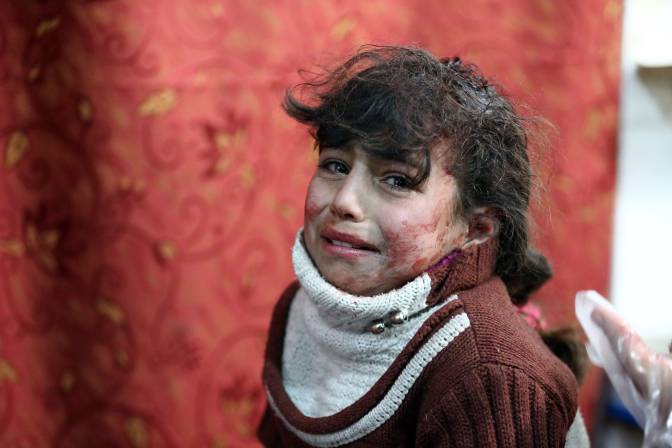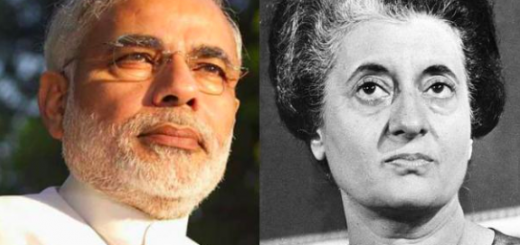The Catholic Teaching on “Just War” and an Appeal for Peace

http://thesoundingline.com/map-of-the-day-every-year-in-the-history-of-the-middle-east/
https://www.change.org/p/declaration-against-the-expansion-of-the-syrian-war
Dr Robert Moynihan
Inside the Vatican
11th April 2018
 The Catholic teaching on "Just War" may no longer, in our "post-Christian" age, be considered a relevant factor in the decision-making of governments.
The Catholic teaching on "Just War" may no longer, in our "post-Christian" age, be considered a relevant factor in the decision-making of governments.
Perhaps we are truly "beyond" justice and injustice.
Perhaps we are no longer concerned about what is "right" or "wrong" in the matter of war, only about what is expedient — perhaps we are concerned only about power, and the use and imposition of that power.
So it may seem naive, even foolish, to appeal to Catholic teaching on "Just War" now, at a time when the outbreak of a wider war in Syria seems imminent.
May it still be avoided…
The Catholic teaching on this matter is, arguably, of great interest to all reasonable human minds — not only to Catholic minds, but also to the minds, and hearts, of all men and women of good will.
Because humans, in the profound depth of their being, do not wish to settle questions purely by force — which can never prove who is "right" and who is "wrong" — but by the higher power of reason, by determining what is right, and what is just.
Hence, the need, as so often in the past, to appeal to the teaching of "Just War."
The teaching is balanced, persuasive, realistic, and very ancient, dating back nearly 1,700 years to St. Augustine (354-430 A.D.), who lived at a time when the city of Rome was sacked and burned by Alaric the Goth (410 A.D.) — so Augustine knew war, and its bitter fruits…
Because of the great antiquity and dignity of this "Just War" teaching, it seems never a useless thing to recall this venerable teaching to our leaders: men and women whom we, in our democracy, have chosen to represent us to seek the highest common good for all through the use of judgment and reason, not though the use of superficial emotion, or in Twitter-expressed whims…
In the final analysis, adherence to this teaching would keep our national, societal actions in harmony with what the greatest minds, the greatest saints, the most noble political leaders in our tradition have held to be the just way of acting, in this fallen world, when situations of conflict seem to be on the verge of descending into open war.
The Catechism of the Catholic Church, in paragraphs 2302-2317, authoritatively teaches what constitutes the just defense of a nation against an aggressor.
Called the Just War Doctrine, it was first enunciated by St. Augustine of Hippo (354-430 AD).
Over the centuries it was taught by Doctors of the Church, such as St. Thomas Aquinas, and formally embraced by the Magisterium, which has also adapted it to the situation of modern warfare…
Just War (2307-17)
All citizens and all governments are obliged to work for the avoidance of war.
Despite this admonition of the Church, it sometimes becomes necessary to use force to obtain the end of justice.
This is the right, and the duty, of those who have responsibilities for others, such as civil leaders and police forces.
While individuals may renounce all violence those who must preserve justice may not do so, though it should be the last resort, "once all peace efforts have failed." [Cf. Vatican II, Gaudium et spes 79, 4]
As with all moral acts the use of force to obtain justice must comply with three conditions to be morally good.
First, the act must be good in itself. The use of force to obtain justice is morally licit in itself.
Second, it must be done with a good intention, which as noted earlier must be to correct vice, to restore justice or to restrain evil, and not to inflict evil for its own sake.
Thirdly, it must be appropriate in the circumstances. An act which may otherwise be good and well motivated can be sinful by reason of imprudent judgment and execution.
In this regard Just War doctrine gives certain conditions for the legitimate exercise of force, all of which must be met:
"1. the damage inflicted by the aggressor on the nation or community of nations must be lasting, grave, and certain;
2. all other means of putting an end to it must have been shown to be impractical or ineffective;
3. there must be serious prospects of success;
4. the use of arms must not produce evils and disorders graver than the evil to be eliminated. The power of modern means of destruction weighs very heavily in evaluating this condition" [CCC 2309].
The responsibility for determining whether these conditions are met belongs to "the prudential judgment of those who have responsibility for the common good."
The Church's role consists in enunciating clearly the principles, in forming the consciences of men and in insisting on the moral exercise of just war…
The Church has no illusions that true justice and peace can be attained before the Coming of the Lord.
It is the duty of men of good will to work towards it, nonetheless.
In the words of the spiritual dictum, we should work as if everything depended upon our efforts, and pray as if everything depended upon God.
[End of "Just War" material from EWTN]
In this context, in a desire to adhere to the Catholic teaching on "Just War," a small group of Catholics has proposed the following declaration in the hope of avoiding a wider war in Syria which risks bringing about a direct confrontation between the United States and Russia, the world's two greatest nuclear powers.
Here is the text of that declaration:
Declaration Against the Expansion of the Syrian War
April 11, 2018
We, the undersigned, hereby make public our resistance against President Donald Trump's announcement that he will, within the next hours or days, retaliate militarily against the sovereign state of Syria, with the argument that the Syrian government is guilty of the the use of chemical weapons against civilians in the Ghouta region on 8 April.
Such a military retaliation is unjust because the purported gas attack has not yet even been sufficiently and carefully investigated by a neutral investigatory expert body.
Since the facts are not yet even clear about who committed such a possible crime, how could we then already punish Syria?
Such a military retaliation would also provoke a military response from Russia which has a military presence in Syria upon request from Syria itself in order to help the country free itself from ISIS and other rebel groups.
Thus, a military intervention on the side of President Trump and his allies might very well provoke a war with Russia which could lead to a widening war involving Europe – to include Turkey – and other regions in the world.
Following Just War Doctrine, we insist upon a fair investigation of the facts before entering a war.
We remind President Trump of the principle of self-defense, which means that a country may only use military force against another sovereign country when it has been attacked by it.
We insist upon prudence and truth.
We refer our readers to an excellent statement written on 10 April by Patrick Buchanan. (I have included the entire text below.)
We ask the world leaders to do everything in their power to stop this cycle of civil and imperial wars.
Some of us remember World War II and the effects on so many innocent civilians.
Let us prevent another, potentially more disastrous world war.
—Dr. Robert Moynihan, Ph.D., Yale University, Founder and Editor, Inside the Vatican magazine (USA)
—Dr. Markus Buening (Germany)
—Marco Tosatti (Italy)
—Father Reto Nay (Switzerland)
—Professor Dr. Thomas Stark (Austria)
—Dr. Peter Chojnowski (USA)
—Brother Andre Marie, M.I.C.M. (USA)
—Deacon Eugene McGuirk (USA)
—Dr. Robert Hickson (USA)
—Dr. Maike Hickson (USA)
—Willy Wimmer, Secretary of State, Ministry of Defense, (ret.) (Germany)
—Professor Paolo Pasqualucci (Italy)
—Pedro Luis Llera, Director of the John Paul II School (Spain)
— Dr Josef Seifert, Professor of Philosophy, (Em) (Austria)
—Cyrille Dounot, Professor of Law (France)
—Dr. h.c. Michael Hesemann (Germany)
—Guillaume de Thieulloy, editor of the French blog Le Salon Beige (France)
Has the War Party Hooked Trump?
By Patrick Buchanan
April 10, 2018
With his Sunday tweet that Bashar Assad, "Animal Assad," ordered a gas attack on Syrian civilians, and Vladimir Putin was morally complicit in the atrocity, President Donald Trump just painted himself and us into a corner.
"Many dead, including women and children, in mindless CHEMICAL attack in Syria," tweeted Trump, "President Putin, Russia and Iran are responsible for backing Animal Assad. Big price… to pay."
"Big price… to pay," said the president.
Now, either Trump launches an attack that could drag us deeper into a seven-year civil war from which he promised to extricate us last week, or Trump is mocked as being a man of bluster and bluff.
For Trump Sunday accused Barack Obama of being a weakling for failing to strike Syria after an earlier chemical attack.
"If President Obama had crossed his stated Red Line In The Sand," Trump tweeted, "the Syrian disaster would have ended long ago! Animal Assad would have been history!"
Trump's credibility is now on the line and he is being goaded by the war hawks to man up.
Sunday, John McCain implied that Trump's comments about leaving Syria "very soon" actually "emboldened" Assad: "President Trump last week signaled to the world that the United States would prematurely withdraw from Syria. Bashar Assad and his Russian and Iranian backers have heard him, and emboldened by American inaction, Assad has reportedly launched another chemical attack against innocent men, women and children, this time in Douma."
Pronouncing Assad a "war criminal," Lindsey Graham said Sunday the entire Syrian air force should be destroyed.
So massive an attack would be an act of war against a nation that has not attacked us and does not threaten us.
Hence, Congress, prior to such an attack, should pass a resolution authorizing a U.S. war on Syria.
And, as Congress does, it can debate our objectives in this new war, and how many men, casualties and years will be required to defeat the coalition of Syria, Russia, Hezbollah, Iran, and the allied Shiite militias from the Near East.
On John Bolton's first day as national security adviser, Trump is being pushed to embrace a policy of Cold War confrontation with Russia and a U.S. war with Syria.
Yet candidate Trump campaigned against both.
The War Party that was repudiated in 2016 appears to be back in the saddle.
But before he makes good on that threat of a "big price… to pay," Trump should ask his advisers what comes after the attack on Syria.
Lest we forget, there was a reason Obama did not strike Syria for a previous gas attack.
Americans rose up as one and said we do not want another Middle East war.
When John Kerry went to Capitol Hill for authorization, Congress, sensing the national mood, declined to support any such attack.
Trump's strike, a year ago, with 59 cruise missiles, on the air base that allegedly launched a sarin gas attack, was supported only because Trump was new in office and the strike was not seen as the beginning of a longer and deeper involvement in a war Americans did not want to fight.
Does Trump believe that his political base is more up for a major U.S. war in Syria today than it was then?
The folks who cheered Trump a week ago when he said we were getting out of Syria, will they cheer him if he announces that we are going deeper in?
Before any U.S. attack, Trump should make sure there is more hard evidence that Assad launched this poison gas attack than there is that Russia launched that poison gas attack in Salisbury, England.
One month after that attack, which Prime Minister Theresa May ascribed to Russia and Foreign Minister Boris Johnson laid at the feet of Putin himself, questions have arisen:
If the nerve agent used, Novichok, was of a military variety so deadly it could kill any who came near, why is no one dead from it?
Both the target, Sergei Skripal, and his daughter Yulia are recovering.
If the deadly poison was, as reported, put on the doorknob of Skripal's home, how did he and Yulia manage to go to a restaurant after being contaminated, with neither undergoing a seizure until later on a park bench?
If Russia did it, why are the British scientists at Porton Down now admitting that they have not yet determined the source of the poison?
Why would Putin, with the prestige of hosting the World Cup in June on the line, perpetrate an atrocity that might have killed hundreds and caused nations not only to pull out of the games, but to break diplomatic relations with Russia?
U.S. foreign policy elites claim Putin wanted Trump to win the 2016 election. But if Putin indeed wanted to deal with Trump, why abort all such prospects with a poison gas murder of a has-been KGB agent in Britain, America's foremost ally?
The sole beneficiaries of the gas attacks in Salisbury and Syria appear to be the War Party.
Patrick J. Buchanan is the author of a new book, "Nixon's White House Wars: The Battles That Made and Broke a President and Divided America Forever." To find out more about Patrick Buchanan and read features by other Creators writers and cartoonists, visit the Creators website at www.creators.com.
A 4,500-year Overview of Middle East History
Finally, for those who would like a brief overview of the last 4,500 years of the political history of the Middle East — and so of Syria — in order to place these latest events in a longer perspective, there is a video file which takes about 10 minutes to view, which shows all the political changes in the region, year by year, over the past 4,500 years (the two millennia show the changes each century, then each half-century, then each 10 years, but from 750 B.C., it shows the changes every year. (link given on top left)
Great civilizatuons have risen and fallen, alternating with many centuries of relative political stability.
For those men and women who think, this spectacle of human aspiration and ceaseless martial conflict may spark a shake of the head, even laughter; for those who feel, it may provoke a tear...
(to be continued)
Posted by: Isaac Gomes
Cover Image: Hala, 9 years of age, receives treatment at a makeshift hospital following Syrian Government bombardments on rebel-held town of Saqba, in the beseiged Ghouta Region. Ameer Almohbany AFP/Getty Images.
















